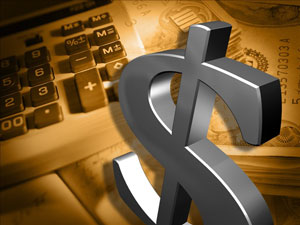-Staff Writer-

WASHINGTON (FinalCall.com) – Be careful when banks offer to do you a favor. It could cost you up to $35 each time they pay a charge you don’t have enough money in your account to cover. Called “Courtesy Overdraft Services,” banks provide this “favor” as a help to clients who are faced with having transactions denied.
“If the bank bounces the check, the consumer will pay a fee to the bank; the consumer will likely pay a fee to the person to whom the check was written; the consumer may also face late payment fees and delinquencies if the check was written to pay a bill; and the consumer may also be at risk of violating state laws pertaining to bad checks,” testified Richard Hunt of the Consumers Banking Association before the House Committee on Financial Services on Oct. 30.
“If the bank denies a debit card transaction, the consumer may be faced with a plate full of food or a cart full of groceries and no way to pay for them. With this in mind, it is not hard to understand why consumers generally prefer that their overdraft transactions be honored, even if they result in overdraft fees.”
But some consumers are fighting mad about this so-called courtesy. Horror stories abound of people who had to pay the $35 courtesy fee.
“I wish they had just denied the charge,” Sheila Pinkney told The Final Call. “I thought I had the money but was short. Just deny it, don’t pay it, and then charge me $35 each time I do it. My shopping spree cost me an additional $105. The least they could do is ask me if I want them to do me a favor and I would politely say, no sir.”
Congressional proposals to rein in abusive overdraft practices are long overdue, Center for Responsible Lending executive Eric Halperin testified.
Mr. Halperin, director of the center’s Washington office, called bank overdraft programs, which cost consumers $23.7 billion last year, among the most predatory lending products on the market.
“Charging people a $35 fee for a small, debit card transaction is unacceptable,” he said. “It doesn’t save them bounce check fees; it simply skims money from their account and puts them in a bind.”
Overdraft fees shot up 35 percent from 2006 to 2008. Banks and credit unions drive up the fees through unfair and costly practices such as automatically approving a debit card transaction even if it overdraws an account and then charging a fee that is often higher than the shortfall itself, says advocates.
“Without asking for their consent, banks and credit unions unilaterally permit most customers to borrow money from the bank by writing a check, withdrawing funds at an ATM, using a debit card at the point of sale, or preauthorizing an electronic payment that exceeds the funds available in a checking account,” testified Jean Ann Fox, director of financial services for the Consumer Federation of America.
“Instead of rejecting the debit card purchase or ATM withdrawal at no cost to the consumer, or returning the check unpaid with a bounced check fee, most institutions will now cover the overdraft and impose an expensive fee for each transaction,” said Ms. Fox.
Federal bank regulators, including the Office of the Comptroller of Currency and the Federal Reserve Board, have recognized the abusive nature of these practices for years but failed to use their oversight authority to rein them in.
The Fed is finally weighing a rule that would take a small step forward, but the Overdraft Protection Act of 2009, (H.R. 3904), under consideration in the House and similar legislation in the Senate would offer real, substantive reform, say its proponents.
Both bills would allow consumers to make informed choices about whether they want to pay for high-cost overdraft coverage. The bills would also limit the number of fees a bank could charge each month and year, and would require that fees be reasonable and bear some relationship to a bank or credit union’s cost of covering a shortfall.
Further, both bills would ban the widespread practice of triggering avoidable overdraft fees by re-ordering customer transactions to maximize overdrafts.
“Consumers do not apply for this form of credit, do not receive information on the cost to borrow bank funds via overdrafts, are not warned when a transaction is about to initiate an overdraft, and are not given the choice of whether to borrow the funds at an exorbitant price or simply cancel the transaction,” said Ms. Fox.
Related news:
Consumers cry ‘foul’ regarding bank fees (FCN, 04-10-2009)












